Translated by Walter Lippmann for CubaNews.
In recent years, senior Cuban leaders have publicly criticized what they consider errors in the formulation and execution of economic policy and have stated that the lack of consensus at the top slows down the continuation of the reform.
His dismissal on February 2, at the start of a new economic plan, is an implicit disqualification of Minister Alejandro Gil, but it is not the first recent failure. Nor does it necessarily mean a big adjustment, according to the record.
Public objections to key decisions have a history. To mention the most notable ones:
-December 27, 2016. Raúl Castro criticizes the “obsolete mentality full of prejudices” against foreign investment.
-December 21, 2017. Marino Murillo, tsar of the reform, recognizes that in the application of this opening plan “we rushed… without having created the conditions or all the training and that is why there is an important group of policies in which the results have been negative.”

-March 26, 2018. The Central Committee of the Communist Party of Cuba concludes that the reform slowed down due to the “complexity of the measures,” “errors” in execution and lack of financing. In practice “it was not always (…) that it managed to involve the bodies, agencies, organizations and entities so that from the base they were able to guide, train, support, control and be accountable for their management.”
-October 27, 2021. Murillo recognizes that retail inflation is the “main deviation” from the Ordering Task (monetary unification begun that year). Consumer prices almost double forecasts.
-November 2021. Murillo resigns as head of the reform commission.
-May 24, 2023 . President Miguel Díaz-Canel criticizes “the passivity, delay and even indifference of institutions and organizations to respond” to foreign investment offers.
-December 15, 2023. Gil announces changes in the Economic and Social Policy Guidelines (one of the pillars of the reform), including the one that provides for the execution of the Planning Task, which “has not met all the objectives set.”
-December 20, 2023. Prime Minister Manuel Marrero, without mentioning Gil, says that “a more strengthened Ministry of Economy is needed, which exercises its true function, and remove those that have separated it from its main activity.” Also without citing Minister Vladimir Regueiro, he considers it “necessary to strengthen and direct the work of the Ministry of Finance and Prices” in the face of problems such as shortages and tax evasion. He reveals that the annual plan and budget “are not projected in correspondence with the capabilities, potentialities and development needs of the nation.”

-December 22, 2023. Díaz-Canel criticizes “the design of the Ordering Task and its inadequate implementation”… “the lack of control and defense of the regulations that are approved and the inadequate functioning of state entities responsible for executing them have reinforced the errors.”
-1st. January 2024. Raúl Castro urges those who “due to insufficient capacity, lack of preparation or simply because they are tired, are not up to the task demanded by the moment,” to “give up their position”.
-January 24, 2024. The Central Bank of Cuba disseminates an evaluation of “banking” (mass migration campaign to an electronic payment system, started in 2023). It says that the banking and financial system was evaluated as deficient the previous year, and that the demand is much higher than the financial, material and human capacity. Much of the ATM network has a high degree of deterioration and its capacity to dispense cash is 75 percent on average.

